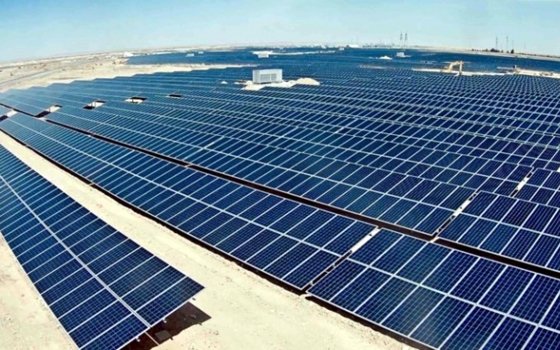Regulatory reforms introduced in 2016 should draw investors to help carry out a large, state-led project pipeline, with clean and alternative energy among the industries benefitting.
The Regulation for Organizing Non-Jordanian Investments No. 77, passed in June, eased capital requirements and other restrictions on foreign investment in key sectors.
Among the headline changes, foreigner investors looking to establish businesses are no longer required to meet a JD50,000 ($70,400) minimum capital threshold to enter specific industries.
Areas previously restricted to local firms, including railway services, have now been opened to international investors, though certain segments of the economy remain off-limits.
A green edge
Investment in alternative energy has flowed in as Jordan seeks to carry out a large pipeline of projects set to add 1.3 GW of renewable generation capacity to the existing installed 400 MW.
Among these is an 89.1-MW wind farm being built near Amman by South Korea’s Korea Electric Power. Construction started on the $184m facility last month and is slated for completion by October 2018.
Another wind project got off the ground in December, when Spanish manufacturing company Gamesa Corporación Tecnológica clinched a contract for the construction of an 86-MW facility in southern Jordan’s Ma’an Governorate. The project is scheduled to be fully operational by October 2018, with the Spanish company set to maintain and operate the project for 20 years after production begins.
Solar projects have also proven a popular destination for recent investment in renewables. In November Saudi Arabia’s ACWA Power secured a $54m loan from European banks for the development for a 60.3-MW solar plant in Mafraq, 50 km north-east of Amman.
Green energy is gaining momentum in Jordan at a time when many large economies, such as China and Japan, are cutting back on new projects in favor of consolidating capacity. While global investment in the segment slipped by 18% in 2016 to $287.5bn, according to industry media, Jordan attracted inflows of $1.2bn, an annual increase of 147%.
Potential exists for Jordan to carve out a niche as a major investment destination in clean energy, according to Safa Jayoussi, head of climate and energy campaigns at IndyACT and Arab world coordinator for Climate Action Network.
“Jordan can easily become a regional hub for clean technologies,” she told local press in early February. “The number of companies operating in the sector is on the rise, in addition to the number of people working in clean technology ventures and companies.”
According to the “Jordan Clean Technology Sector Report 2016” released in early February by EDAMA, a local business association, the kingdom has the second-most-attractive environment for renewable and energy-efficient investments in the region, after Tunisia.
The report found that the 365 companies operating in the field – 80% of which are locally owned – were driving green technology development across several pivotal areas, including energy efficiency, renewables, and water and waste management.
Fostering trade links
In overhauling its investment framework, Jordan is looking to raise foreign investment inflows across the economy – where GDP growth has been around 2-3% annually since 2010 – in part by strengthening bilateral relations with its neighbors.
The reforms were introduced after the government set up a collaborative body with Saudi Arabia called the Saudi-Jordanian Coordination Council. Following its first meeting in October, the Saudi government pledged to channel billions of dollars into infrastructure projects in Jordan, including a railway system, a project to boost electricity connectivity and a real estate project in Matal in Aqaba.
Jordan is also moving to strengthen trade relations with Iraq. In 2016 the two neighbors agreed to build an Iraq-Jordan pipeline to carry oil and gas from Basra to the port of Aqaba. On the back of this, a meeting between the Iraqi Business Council and the Iraqi Economic Council was held in Amman at the end of last month, when representatives spoke of Jordan’s attractive investment environment. At the event, sector players from both countries said they were keen to extend economic relations beyond the energy sector.
Ties are also improving with Turkey. In February Jordan’s prime minister, Hani Al Mulki, met with a high-level business delegation at the Turkish-Jordan Business Forum, where Turkish representatives pledged to increase investments in Jordan to $1bn, with a focus on water, energy and infrastructure projects.
Oxford Business Group
21 March






















































